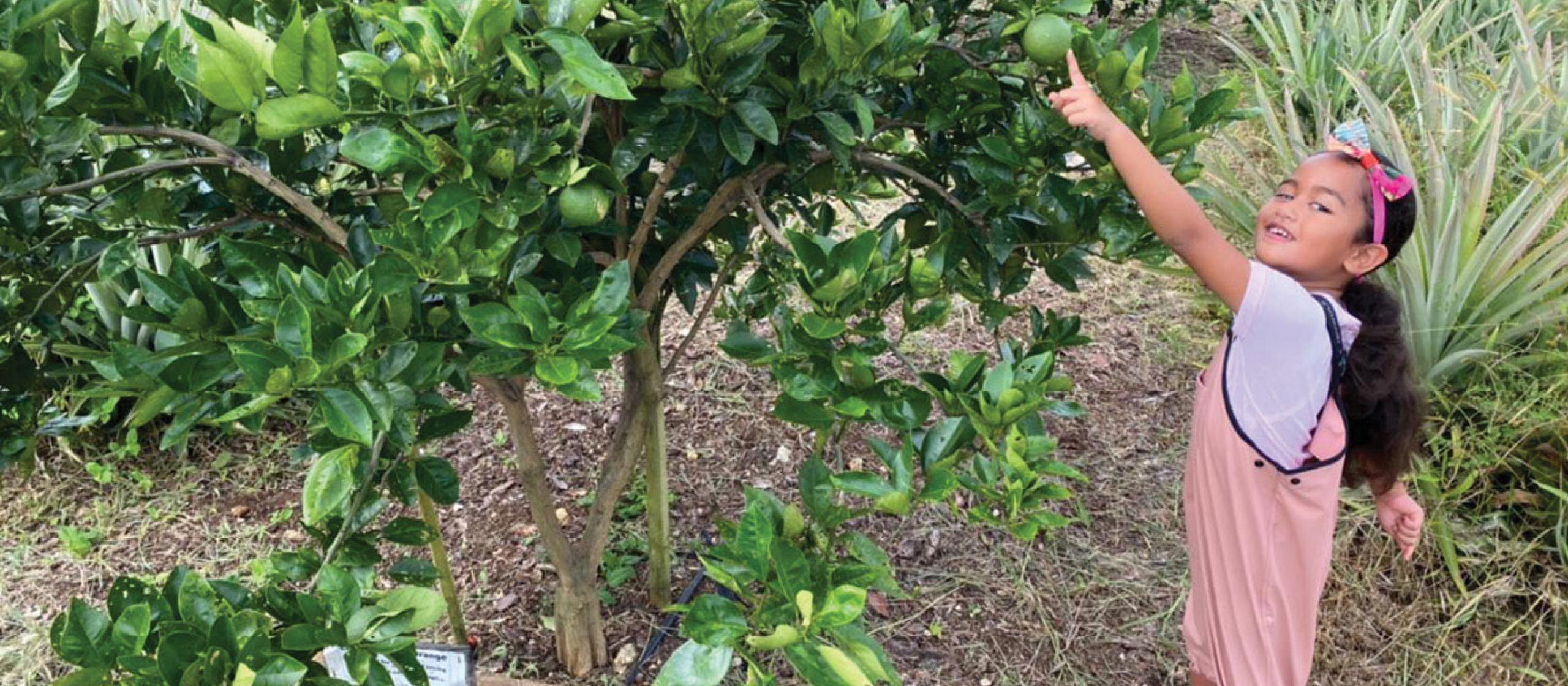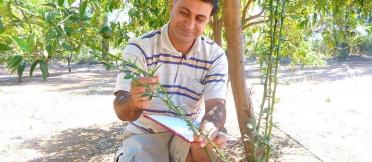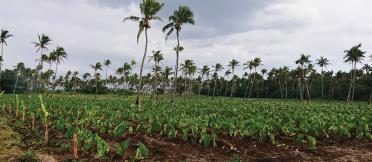- HomeHome
-
About ACIAR
- Our work
- Our people
-
Corporate information
- ACIAR Audit Committee
- Commission for International Agricultural Research
- Policy Advisory Council
- Agency reviews
- Executive remuneration disclosure
- Freedom of information (FOI)
- Gifts and benefits register
- Information publication scheme
- List of new agency files
- Contracts
- Legal services expenditure
- Privacy impact assessment register
- Commonwealth Child Safe Framework
- Benefits to Australia
- Careers
- 40 years of ACIAR
-
What we do
- Programs
- Cross-cutting areas
- Resources
- Where we work
-
Funding
- Research projects
- Fellowships
-
Scholarships
- John Allwright FellowshipScholarships to study in Australia for ACIAR partner country scientists to have Australian postgraduate qualifications
- ACIAR Pacific Agriculture Scholarships and Support and Climate Resilience Program
- Alumni Research Support Facility
- Publications
- News and Outreach
Date released
01 July 2021
Four years on from the launch of an ACIAR project to improve fruit production in the Pacific, the first mandarins from a newly established commercial orchard in Tongatapu have been snapped up by Tongan shoppers.
‘We are extremely happy with the quality of the fruit: it’s sweet, juicy and easy to peel,’ says Mr Minoru Nishi, whose Nishi Trading Company has set up an irrigated orchard of nearly 200 mandarin, navel orange, lemon and Tahitian lime trees as part of the project.
‘The Afourer mandarins from our first harvest in May sold very quickly in the supermarket at T$4 (A$2.30) for a bag of fruit weighing around 600 grams, which is about T$1 cheaper than imported citrus,’ Mr Nishi says.
‘There’s still a lot of work to be done but this project has been a game changer, thanks to ACIAR engaging the private sector and community groups. It will benefit the country of Tonga as a whole.’
Pacific horticulture
The 2016–20 project aimed to increase the efficiency of fruit value chains, provide targeted capacity building to the private sector and government extension services, and enhance the engagement of smallholder farmers and communities in managed orchards to reduce fruit imports and improve nutrition.
Fruit production in the Pacific region represents less than 10% of overall horticultural output, with very few large-scale orchards and most citrus imported. While many backyards have fruit trees such as oranges, they aren’t maintained and the fruit is of poor quality.
‘Much of the project was working through the research challenges as very little had been done to investigate fruit crops in the Pacific, with the exception of pineapples, papaya, mango and breadfruit,’ says project leader Professor Steven Underhill from the Australian Centre of Pacific Islands Research at the University of the Sunshine Coast.
‘Each crop had different issues in each country, and while breadfruit was identified as a priority crop with potential for the Pacific, the standout success was citrus in Tonga.’
While the project partnered with the Ministry of Agriculture and Food, Forests and Fisheries Tonga, Professor Underhill also approached Mainstreaming of Rural Development Innovation (MORDI) Tonga Trust and Nishi Trading to encourage communities on Tongatapu and the outer ‘garden island’ of ‘Eua to also take part.
Growing citrus
‘Citrus has a number of benefits: it’s counter-seasonal in winter months so there is supply when other fruit is not available, it’s relatively drought tolerant, and while it requires a level of post-harvest handling, it also has a long shelf life,’ says Professor Underhill.
One of the major benefits of having locally grown fruit is that it will help to combat the high incidence of non-communicable diseases in the Pacific such as diabetes and cardiovascular disease.
Elite grafted genetics were imported from commercial orchards in Australia, including Washington and Valencia oranges; Emperor, Imperial, Afourer and Ellendale mandarins; Meyer lemon and Tahitian lime, as well as trial plots of black sapote, guava, dragon fruit, star fruit and avocados.
Grafted trees were planted at three main sites: in the Houma community and the Ha’atu’a community on ‘Eua Island, and at Nishi Trading’s site at Utulau, on the main island of Tongatapu. Some trees were also allocated to Hango College on ‘Eua Island and Tonga’s Ministry of Agriculture and Food, Forests and Fisheries.
Four years later, the first fruit is being picked from some of the 300 trees in five commercial orchards.
Commercial development
Professor Underhill readily acknowledges that without the local buy-in of Nishi Trading as a commercial partner and MORDI Tonga providing the community interface, the project would not have been as successful, particularly since COVID-19 has prevented any Australian visits to the islands in 2020–21.
MORDI Tonga General Manager Mr Soane Patolo says 15 communities on the more elevated island of ‘Eua took a lot of convincing to turn over valuable land to plant the trees and learn how to cultivate, prune and manage them, but seeing the citrus bear fruit has changed their minds.
‘It has been a major eye-opener to raise the trees from rootstock but we have trained 18 of MORDI’s staff in routine maintenance of the orchard, and the challenge now is to make this sustainable through upgrading our skills,’ Mr Patolo explains.
Building knowledge, skills
Senior horticulturist supporting the project, John Chapman, says a significant number of Tongans have been trained in citrus planting, fertilising, pruning, weed control, irrigation, and pest and disease identification and control using soft chemicals.
‘They’ve also been exposed to the strategic challenge of caring for an orchard with no obvious reward for four years before it starts to bear fruit and all the benefits that that brings,’ says Mr Chapman.
‘Now with the orchards successfully established and starting to produce commercial quantities of fruit, the focus for the next phase shifts from growing the trees as fast as possible to slowing down growth and maximising flowering, fruiting and fruit quality—both external and external—and then developing and supplying markets, mainly local but also lime exports to New Zealand.
‘Also critical will be the establishment of rootstock trees to supply rootstock seedlings and training a cohort of Tongans working with the orchards to vegetatively propagate by grafting. This will sustain the new culture and allow wider distribution of grafted varieties.’
Mr Patolo says he’s hopeful that in the future, each household in Tonga will have at least five trees in an orchard-type planting, with one of these being citrus.
‘The King of Tonga says he will allocate land for a plantation on ‘Eua if we can supply the citrus seedstock for it. We would like to roll the project out to other islands too,’ says Mr Patolo.
Mr Nishi is continuing to progress the work.
‘We already had our own packing shed and have built a factory for processing and a new cool store facility with a capacity of 1740 m3 , which has the potential to make dried or frozen product as well as juice citrus and watermelons down the track,’ Mr Nishi says.
‘This is a positive change and a good approach to sustainable development in Tonga.’
ACIAR project: Enhanced fruit production and postharvest handling systems for Fiji, Samoa, and Tonga, HORT/2014/077.
Key points
- Fruit has been harvested from a commercial orchard of citrus in Tonga and sold to local consumers.
- Government staff are being trained in orchard maintenance and tree propagation skills.
- Packing, processing and cool room facilities have also been established as part of the overall development of the industry.





